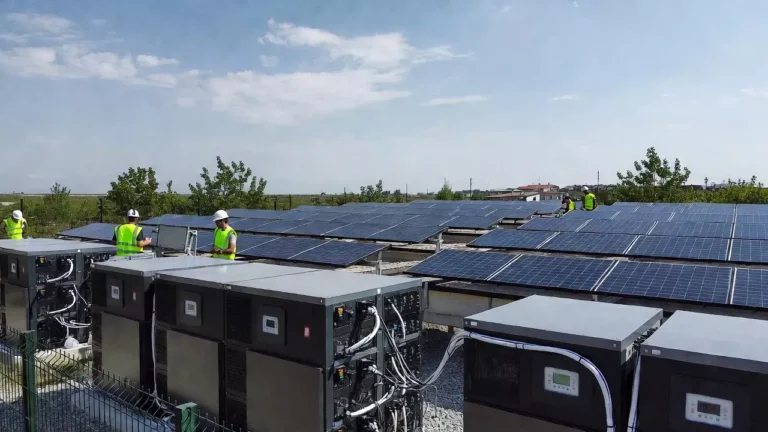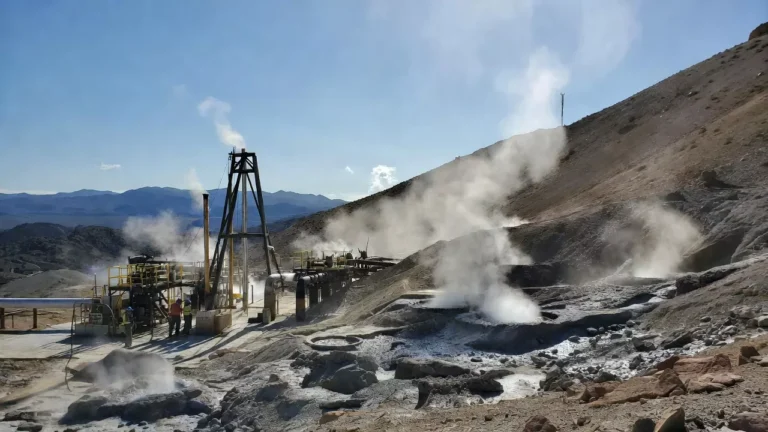
Iberdrola Launches First Solar Park in Germany, Delivering Clean Energy to Vodafone and Saving 20,000 Tons of CO₂ Annually
Iberdrola Deutschland, the German subsidiary of global energy leader Iberdrola, has officially launched its first solar energy project in Germany—a milestone that not only strengthens its renewable energy portfolio in the country but also represents a strategic step toward supporting corporate decarbonization. Located in Boldekow, in the state of Mecklenburg-Vorpommern about 180 kilometers north of Berlin, the solar farm was inaugurated in partnership with Vodafone Germany. With an annual output exceeding 53 gigawatt-hours (GWh), the photovoltaic facility will supply green electricity to more than 3,000 of Vodafone’s mobile communication towers across the country.
This pioneering renewable infrastructure spans an area greater than 65 football fields and hosts over 80,000 solar panels. Its contribution is twofold: powering Germany’s growing digital infrastructure with clean energy, and reinforcing national goals for carbon reduction. Over its estimated 30-year operational lifespan, the solar park is projected to offset approximately 20,000 metric tons of carbon dioxide (CO₂) each year, a cumulative savings of 600,000 tons—a significant environmental achievement in Germany’s broader energy transition.
A New Chapter in Iberdrola’s German Operations
While Iberdrola is already a dominant force in the German renewable energy sector through its extensive offshore wind assets in the Baltic Sea—including the Wikinger, Baltic Eagle, and Windanker wind farms—the Boldekow solar park marks the company’s first investment in Germany’s onshore solar space. This diversification underscores the group’s commitment to deploying a balanced and resilient energy portfolio, combining wind and solar technologies to meet future energy needs sustainably.
“Photovoltaics are another essential building block to expand our exclusively renewable energy offering in Germany,” said Felipe Montero, CEO of Iberdrola Deutschland. “This project not only increases our capacity but also reflects our deepening commitment to sustainability and regional development. Boldekow was selected for its high solar irradiance and, just as importantly, the local community’s strong support for renewable energy.”
Indeed, Iberdrola’s choice of site is indicative of its collaborative approach to the energy transition. The municipality of Boldekow was instrumental in facilitating the project through administrative support and regional enthusiasm for sustainability. This local partnership model is something Iberdrola seeks to replicate across other initiatives in Europe and globally.
Powering the Digital Transition with Renewable Energy
One of the project’s defining features is its unique partnership with Vodafone Germany, a telecommunications giant undergoing its own transition to sustainable operations. Under a long-term power purchase agreement (PPA), the solar energy generated at Boldekow will be used exclusively by Vodafone to power over 3,000 mobile network stations throughout the country. This direct, long-term green energy supply enables Vodafone to make significant strides toward reducing its own environmental footprint.
Marcel de Groot, CEO of Vodafone Germany, emphasized the relevance of this initiative to the company’s climate strategy. “Digitalization is a powerful driver for sustainability—but only if the infrastructure behind it is sustainable too,” de Groot stated. “That’s why we are doubling down on our efforts to decarbonize our networks. With Iberdrola’s solar park, we now have a dedicated renewable power source to operate more than 3,000 of our mobile base stations. It’s a meaningful step toward climate-neutral digital infrastructure.”
Vodafone had already achieved carbon neutrality for its Scope 1 and 2 emissions, which include direct emissions from owned sources and indirect emissions from purchased energy. Since 2020, the company has sourced all of its electricity from renewable sources. The agreement with Iberdrola adds security and transparency to its green energy procurement, providing long-term certainty over both cost and carbon performance.
Engineering, Partnerships, and Innovation
The implementation of the Boldekow solar facility was made possible through collaboration with several strategic partners and suppliers. Key participants included Solarpro, which led project development; inverter and energy storage technology leader Sungrow; power systems engineering firm P&Q; and construction specialist 4Energy.
The technology deployed at the site is designed for high efficiency and reliability. The 80,000 solar panels are engineered to harness both direct sunlight and diffuse light reflected from the ground and surrounding environment, maximizing energy output under varying weather conditions typical of northern Germany. Advanced inverters and energy management systems help ensure the seamless integration of power into the grid and provide real-time monitoring of energy generation and equipment health.
According to Felipe Montero, such technological and logistical sophistication is essential to the future of renewable energy. “We must combine innovation with reliability,” he noted. “To decarbonize the energy sector at scale, all elements—from engineering and finance to grid integration and regulation—must align.”
Local Economic and Social Impact
Beyond climate and corporate sustainability benefits, the solar park is designed to yield tangible benefits for the local community in Boldekow. Over the coming decades, the municipality is expected to earn millions of euros through property taxes generated by the facility. These funds can be reinvested into local infrastructure, public services, or further sustainability efforts.
Moreover, the construction and installation phases provided economic opportunities for local businesses and workers. Iberdrola prioritized regional participation during development, ensuring that a portion of the economic value created by the project remains in the community. This approach is in line with Iberdrola’s broader vision of the energy transition—not just as an environmental necessity but as an opportunity to foster regional economic resilience and inclusive growth.
“The transformation of energy supply must be rooted in the regions,” said Montero. “The success of the energy transition hinges not only on technology but on social acceptance, local collaboration, and fair distribution of benefits.”
Aligning Onshore and Offshore Strategies
The Boldekow solar park also serves as a bridge between Iberdrola’s offshore and onshore ambitions. The company’s presence in Germany has so far been centered in the Baltic Sea, where it operates some of Europe’s most significant offshore wind installations. With the addition of solar to its portfolio, Iberdrola is now positioned to deliver integrated renewable energy solutions tailored to various geographical and customer needs.
“We see offshore and onshore renewables as complementary,” Montero explained. “Each has its strengths and challenges, but together they provide the technological diversity needed to secure a resilient and decarbonized energy system.”
He also called for continued support from policymakers to streamline permitting processes, accelerate grid infrastructure development, and ensure stable regulatory frameworks for long-term investment. “Germany has ambitious climate targets,” Montero said. “Achieving them will require coordination between industry, government, and communities. We need clear, efficient approval pathways and a stable investment climate to keep the momentum going.”










